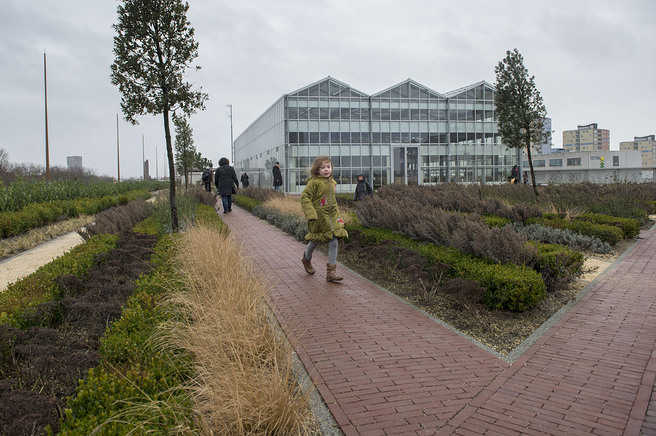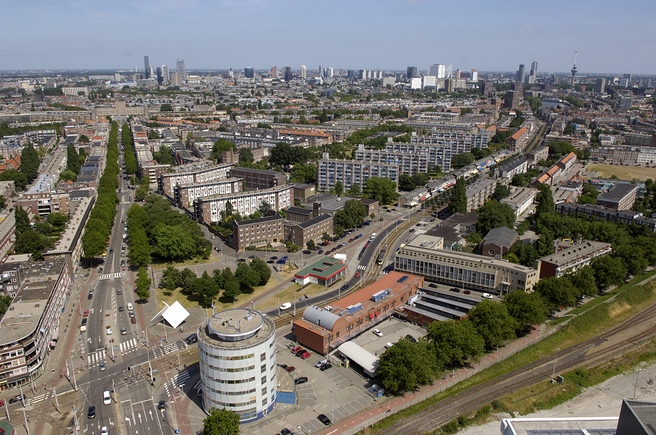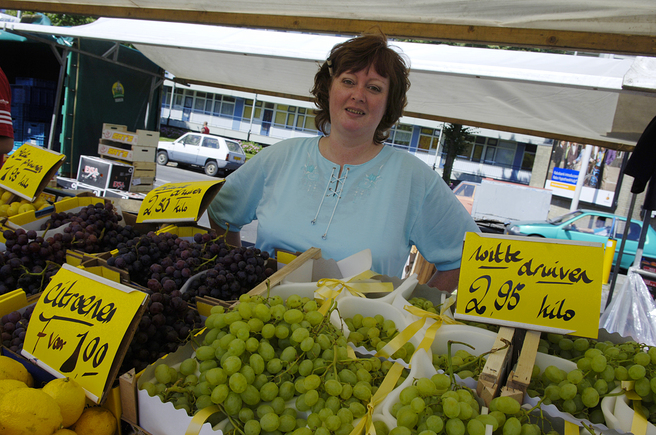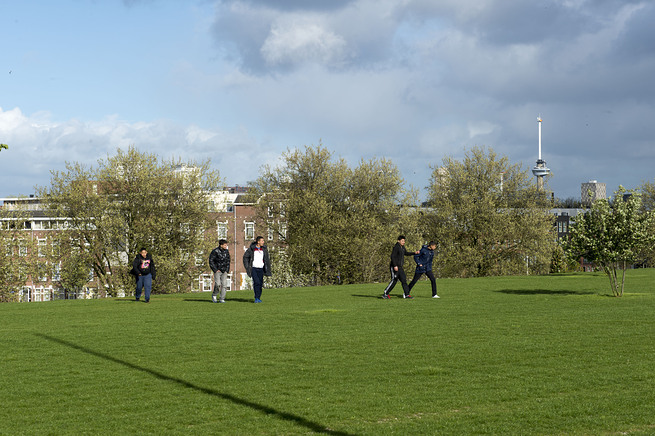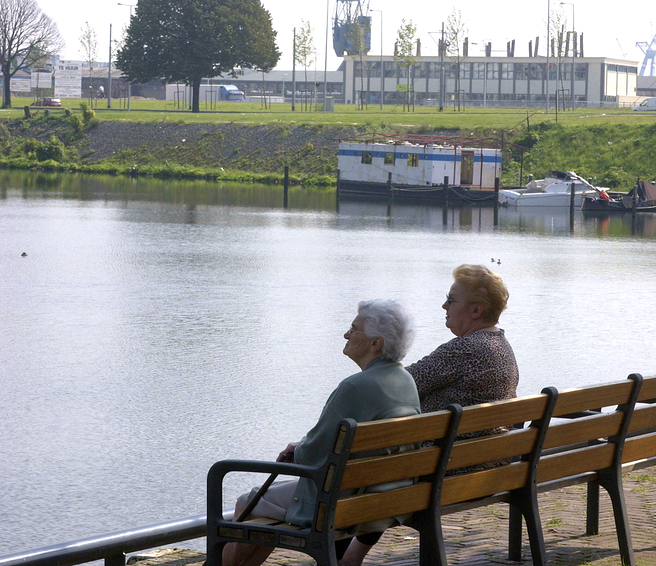The impact of the corona crisis on the daily lives of city dwellers was significant. At the beginning of the first lockdown in March 2020, numerous initiatives quickly arose in the Bospolder-Tussendijken neighbourhoods to help local residents in need. Veldacademie entered into dialogue with actors from the neighbourhood, to find out what enabled residents and initiatives in the neighbourhood to act in a resilient manner.
Resilient BoTu
The Neighbourhood Development Programme Resilient Botu 2028 has been running in Bospolder-Tussendijken since 2019. The aim of this programme is to make city districts like Bospolder-Tussendijken more resilient. Among other things, this will be done by better connecting formal and informal social networks and working according to the principles of community building and Asset Based Community Development (ABCD). According to ideology, neighbourhoods are built from the bottom up and from within by means of strong and connected neighbourhood communities where residents experience and make use of their collective strength.
During the course of this programme, Veldacademie will monitor (community) resilience in the district. However, resilience is a complex and difficult phenomenon to measure. After all, resilience only really becomes visible when it is converted into (collective) action in response to a disruption. The corona crisis forced residents and initiatives in the neighbourhood to act, and thus provided a unique opportunity to see resilience expressed in practice.
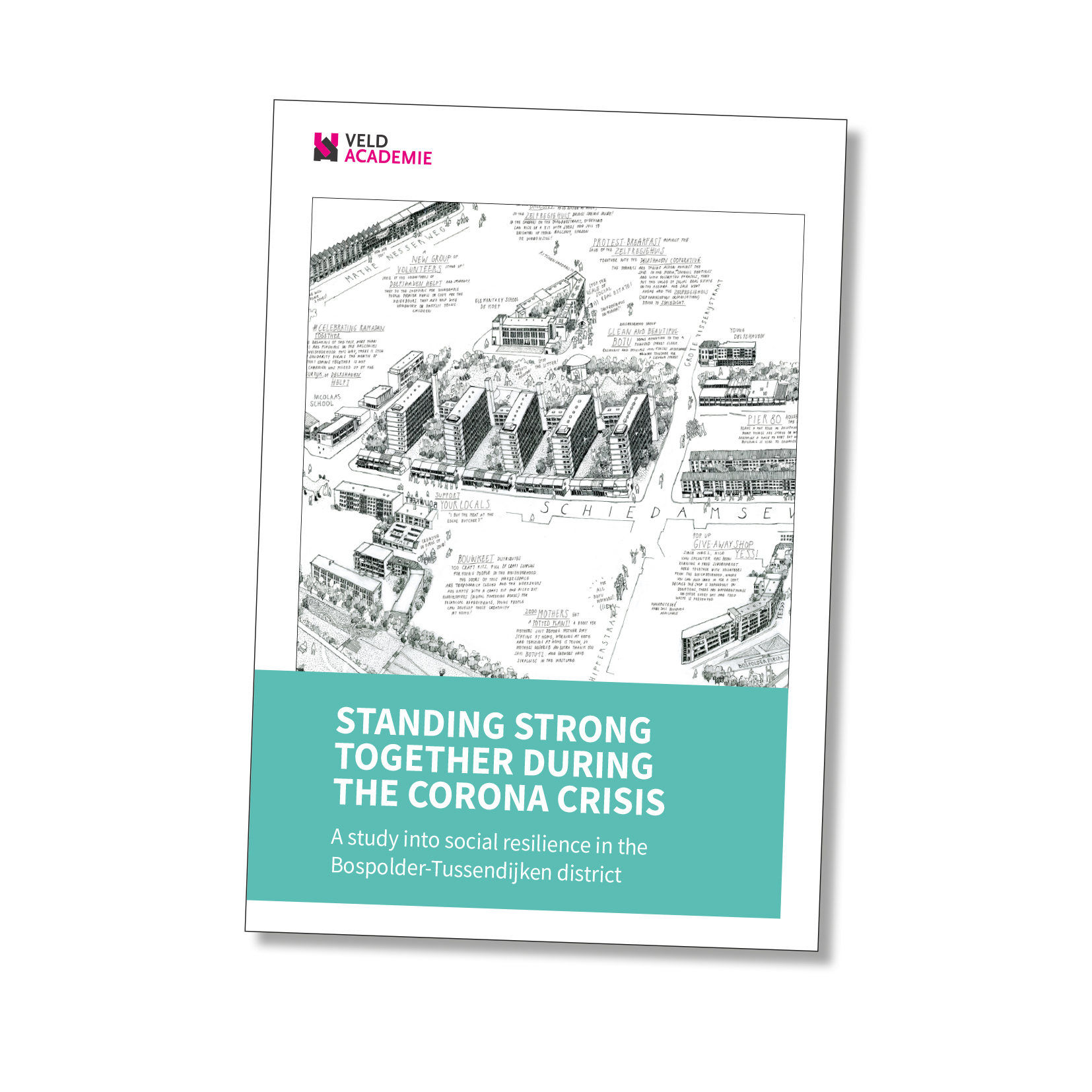
Stronger Together
How did residents and local entrepreneurs in BoTu react to the first lockdown as a consequence of the COVID-19 pandemic? What requests for help emerged in this crisis situation? What kind of local initiatives emerged to answer these requests for help? Who came into action? And what was the relationship with already existing initiatives? The answers to these questions can be found in the report Standing strong together during the corona crisis, which can be found atthe Botu website. In short, the pandemic has taught us five lessons about the resilience of communities:
- Existing networks
In BoTu, a large number of new initiatives have risen to support local residents during the crisis. These were predominantly started by active local residents and local organisations, often in informal contexts. Existing networks make it easier to initiate new campaigns. Moreover, previous cooperation establishes a relationship of trust where people know each other's strengths and can anticipate on use them. In short, a strong network is essential for a community to be resilient and is used in times of crisis. - Cooperation between formal and informal actors
Actors during the lockdown had a common goal to help the people of BoTu. Activities to support residents were swift and effective because formal and informal actors collaborated with each other. They did so with complementary capacities and resources, such as financial support, professional skills and knowledge of who to approach for what purpose. - Flexibility in roles
Various actors, including formal actors, showed flexibility in their roles in the neighbourhood during the lockdown. For example, by using other capacities or by taking on new responsibilities in order to meet the changed demands of the district. A strong sense of necessity stimulated this role change. In BoTu, this flexibility contributed to the problem-solving capacity in response to the COVID-19 crisis by providing low-threshold and rapid access to supporting facilities and resources. - Policy and regulations
Government crisis policies in BoTu followed national policies. In several cases this limited the ability to act resiliently. One example is that formal institutions made the decision to close down meeting places in compliance with the corona measures. However, these very meeting places proved to be of specific importance in BoTu. For example, the local market is significant because it offers access to affordable food and the community centre was important because of its access to reliable information. Local and targeted policy is desirable in such cases. - Communication
For an effective approach to problems in times of crisis, good communication is essential. If this is lacking, it adds to the difficulty for residents and other actors to access networks, meetings and information. At the beginning of the corona crisis, a communication structure was set up in BoTu so that informal and formal actors could easily coordinate help requests and offers. The need to keep this platform up and running was expressed, in order to be able to effectively respond to the wants of the neighbourhood after the crisis as well. Digital means played a major role in the communication between actors.
Stories from BoTu
In April 2020, in cooperation with several students, we started conducting telephone interviews. We conducted a total of 67 interviews with 47 individuals and were thus able to collect extensive qualitative data. The distinctive feature of this research method is that we published the data we collected immediately during the crisis. The inspiring activities and initiatives from the neighbourhood were shared in the form of short stories on the specially created website. Inhabitants of BoTu were thus able to quickly find out where they could go. Other neighbourhoods could also use the information.
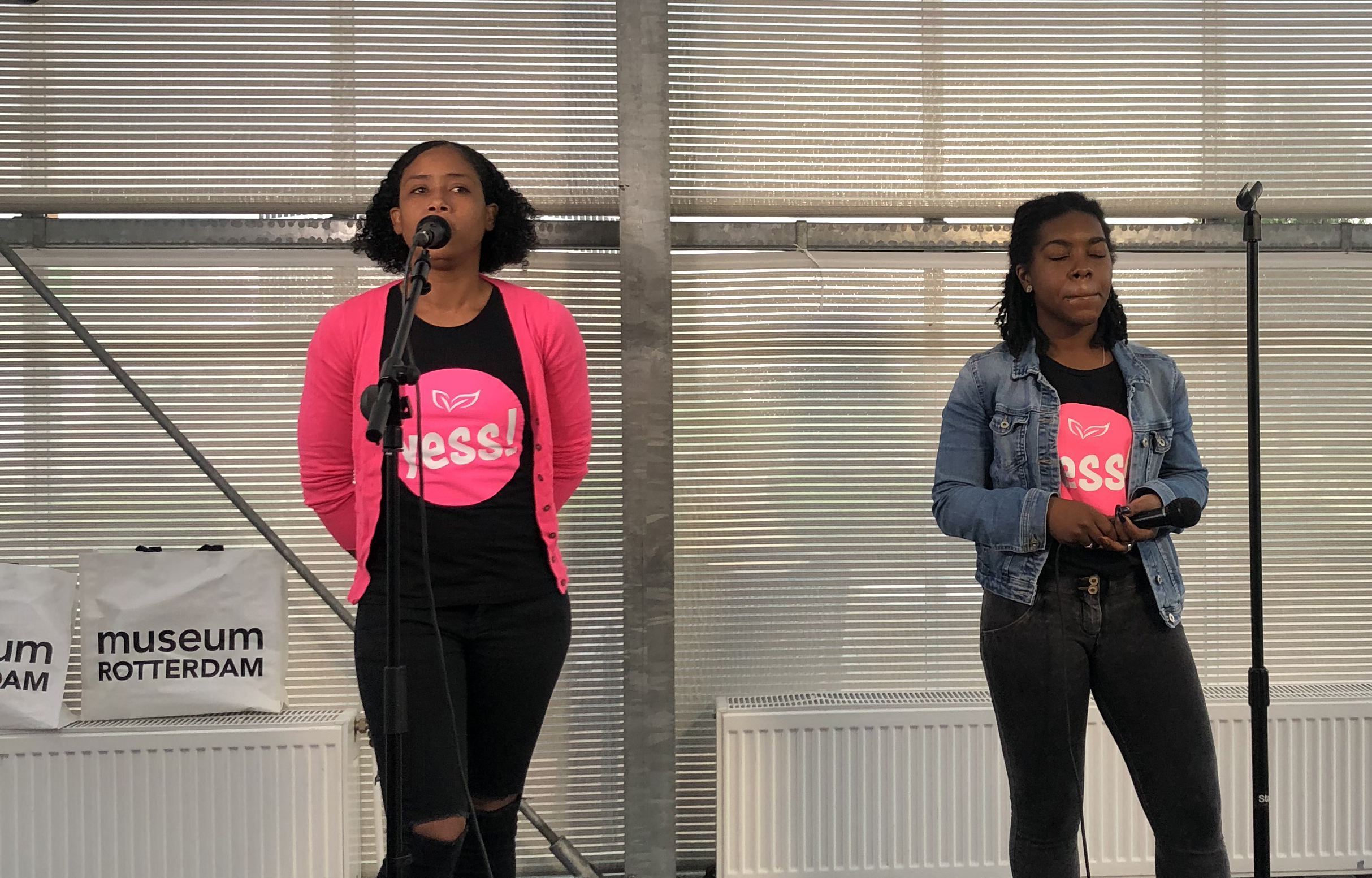
Jade Corsica and Alida Adriaan talk about the pop-up supermarket Yess! during the Merwe-Vierhavens Story café
At a later stage, all interview results were analysed to come to general insights and recommendations, collected in a report. Subsequently, various graduation students from the Sociology master's programme and other disciplines continued to work with the rich quantity of qualitative data in order to add a deeper layer of knowledge from a different angle.
Knowledge exchange
On the BoTu-website all the initiatives are described in the form of short stories. The report ‘Stronger together in times of Corona’ can also be downloaded from this website. The various collective actions that came about were also visualised in a drawing of the neighbourhood: 'Corona Chronicles'. The illustration gives a clear and coherent picture of how local residents were helped through the crisis. This drawing, made by Studio NadiaNena, is an experiment for us to try and present research results in an accessible way. This drawing can also be found on the BoTu-website. 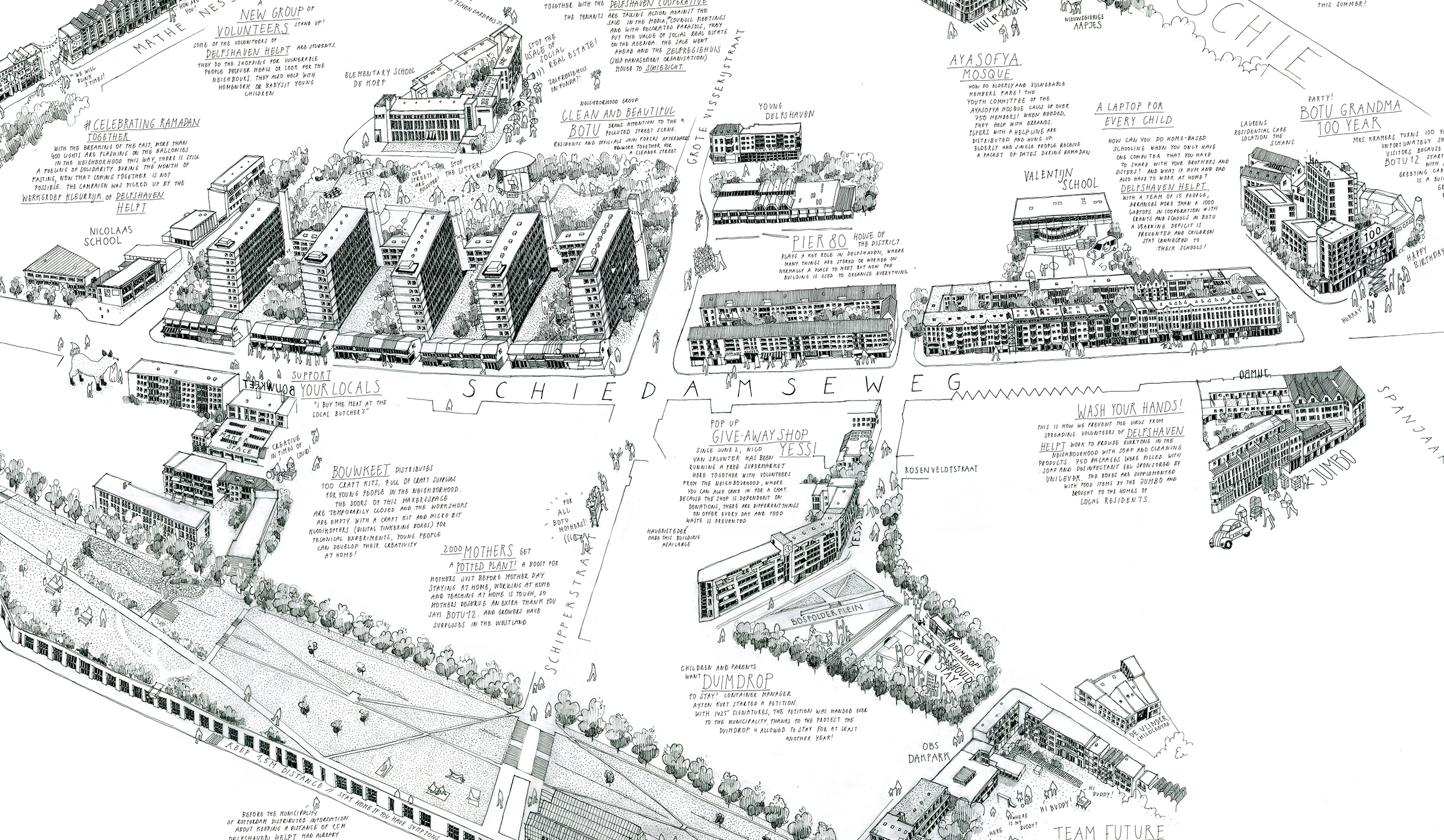
Graphic: Corona Chronicles, Studio NadiaNena
Further interpretation of the results and knowledge sharing took place in the form of two workshops.
- Many initiatives arose in Bospolder-Tussendijken during the first lockdown. But is that unusual? What happened in other districts? Together with researchers from Erasmus University and the Knowledge Workshop Liveable Neighbourhoods (Kenniswerkplaats Leefbare wijken in Dutch), we organised a workshop in which we interpreted the first results with people from the neighbourhood network, initiators and area administrators. We compared the resultes to three other Rotterdam neighbourhoods: Hoogvliet, Agniesebuurt and Kleiwegkwartier.
- The aim of the second workshop was to learn from the experiences of the initiators at the administrative level. What went well and what can we improve to come out of the crisis stronger, according to the 'build back stronger' principle?
